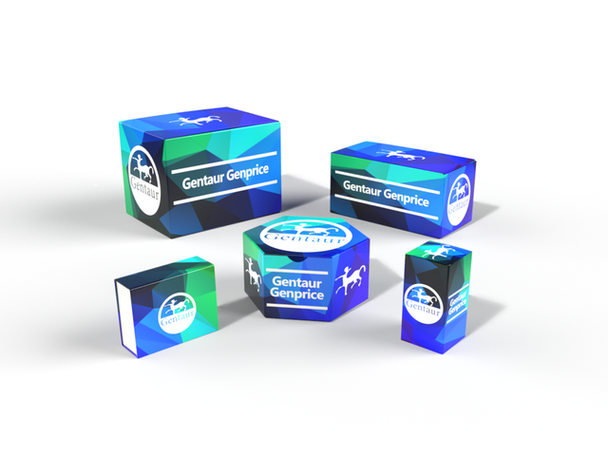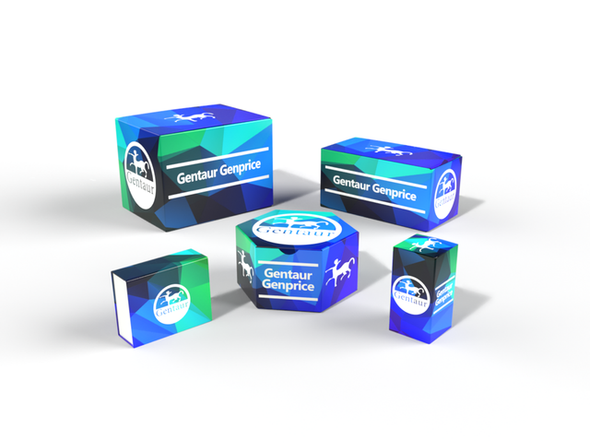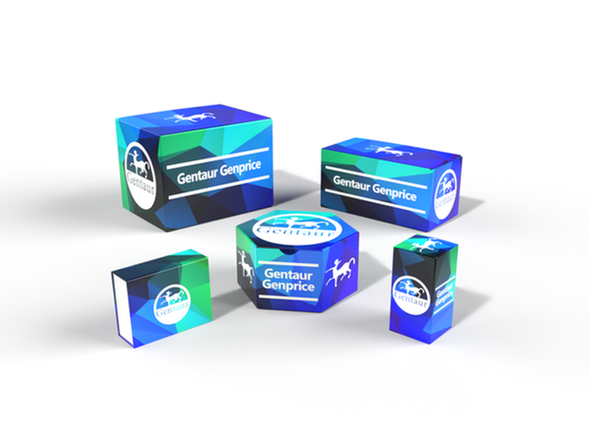749
Rat Renal tumor antigen (RAGE) ELISA Kit | KTE100358
- SKU:
- 749-KTE100358
- Availability:
- Usually ships in 5 working days
Description
Rat Renal tumor antigen (RAGE) ELISA Kit | KTE100358 | Gentaur UK, US & Europe Distribution
Application: This Rat Renal tumor antigen (RAGE) ELISA Kit employs a two-site sandwich ELISA to quantitate RAGE in samples. An antibody specific for RAGE has been pre-coated onto a microplate. Standards and samples are pipetted into the wells and anyRAGE present is bound by the immobilized antibody. After removing any unbound substances, a biotin-conjugated antibody specific for RAGE is added to the wells. After washing, Streptavidin conjugated Horseradish Peroxidase (HRP) is added to the wells. Following a wash to remove any unbound avidin-enzyme reagent, a substrate solution is added to the wells and color develops in proportion to the amount of RAGE bound in the initial step. The color development is stopped and the intensity of the color is measured.
Detection Method: Colorimetric
Conjugate: N/A
Sample Type: Cell culture supernatants#Serum#Plasma#Other biological fluids
Assay Type: Multiple steps standard sandwich ELISA assay with a working time of 3-5 hours. It depends on the experience of the operation person.
Kit Component: • Rat Renal tumor antigen microplate
• Rat Renal tumor antigen standard
• Rat Renal tumor antigen detect antibody
• Streptavidin-HRP
• Standard diluent
• Assay buffer
• HRP substrate
• Stop solution
• Wash buffer
• Plate covers
Features & Benefits: Rat Renal tumor antigen (RAGE) ELISA Kit has high sensitivity and excellent specificity for detection of Rat RAGE. No significant cross-reactivity or interference between Rat RAGE and analogues was observed.
Calibration Range: Please inquire
Limit Of Detection: Please inquire
Usage Note: • Do not mix components from different kit lots or use reagents beyond the kit expiration date.
• Allow all reagents to warm to room temperature for at least 30 minutes before opening.
• Pre-rinse the pipet tip with reagent, use fresh pipet tips for each sample, standard and reagent to avoid contamination.
• Unused wells must be kept desiccated at 4 °C in the sealed bag provided.
• Mix Thoroughly is very important for the result. It is recommended using low frequency oscillator or slight hand shaking every 10 minutes.
• It is recommended that all samples and standards be assayed in duplicate or triplicate.
Storage Instruction: The unopened kit should be stored at 2 - 8°C. After opening, please store refer to protocols.
Shipping: Gel pack with blue ice.
Precaution The product listed herein is for research use only and is not intended for use in human or clinical diagnosis. Suggested applications of our products are not recommendations to use our products in violation of any patent or as a license. We cannot be responsible for patent infringements or other violations that may occur with the use of this product.
Background: Tumor antigens recognized by cytolytic T cells (CTLs) can be classified into 4 groups: shared tumor-specific antigens encoded by MAGE-type genes that are silent in most normal tissues except testis and expressed in many tumors; differentiation antigens that are also expressed in normal cells; antigens resulting from tumor-specific point mutations; and antigens overexpressed in tumor cells. By screening cells expressing both HLA-B7 and kidney tumor cell RNA with autologous CTLs, followed by anchored PCR analysis, Gaugler et al. (1996) isolated a cDNA encoding RAGE. RT-PCR analysis detected expression only in retina and in a number of tumor cell types. One putative RAGE open reading frame encodes a 40-amino acid protein and includes the peptide recognized by HLA-B7-restricted CTLs.
Alternative Names: RAGE; MOK; RAGE1; MAPK/MAK/MRK overlapping kinase; renal cell carcinoma antigen (MOK protein kinase)
Search name: RAGE; MOK; RAGE1; MAPK/MAK/MRK overlapping kinase; renal cell carcinoma antigen (MOK protein kinase)
Tag: RAGE






